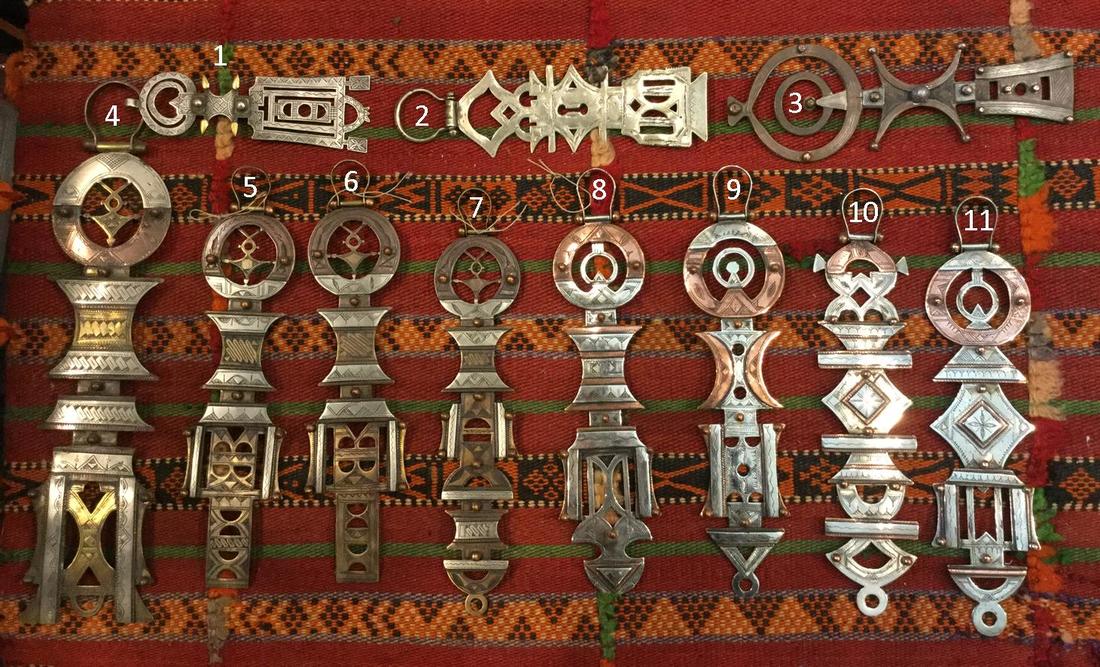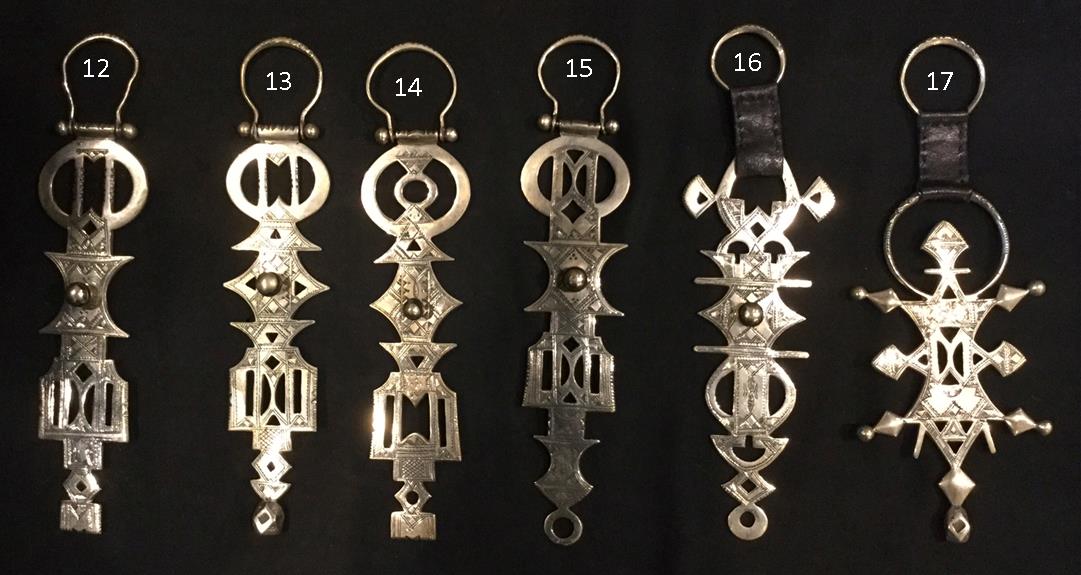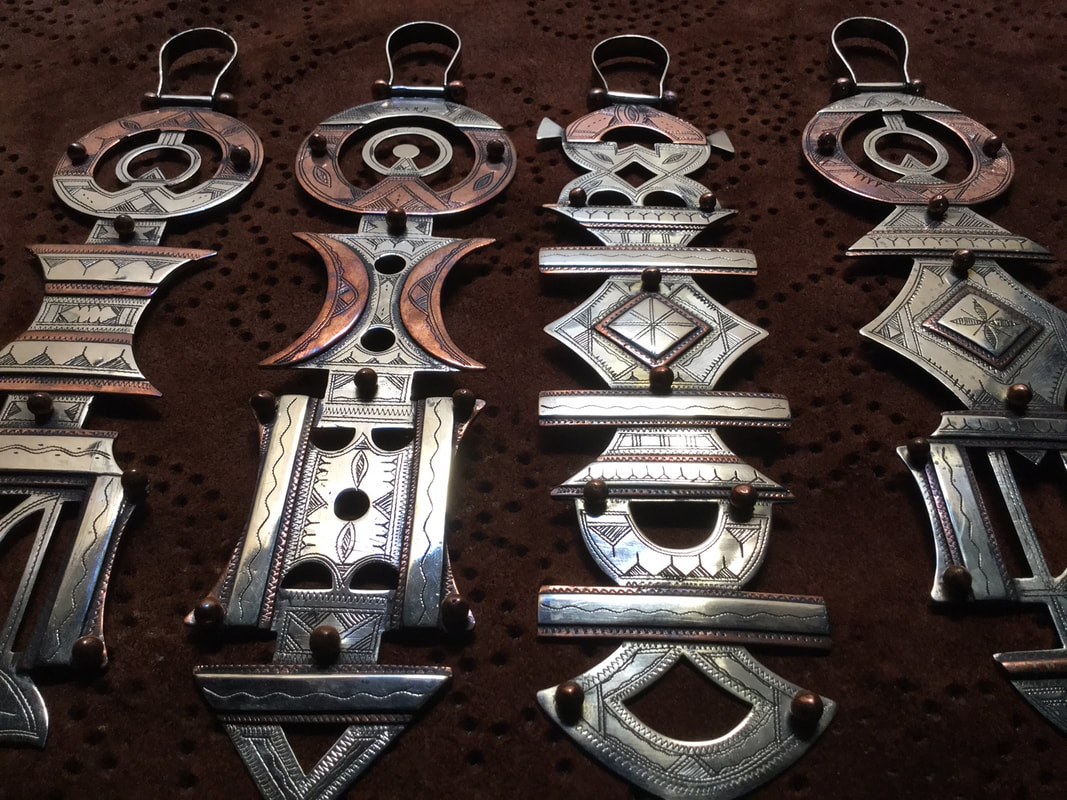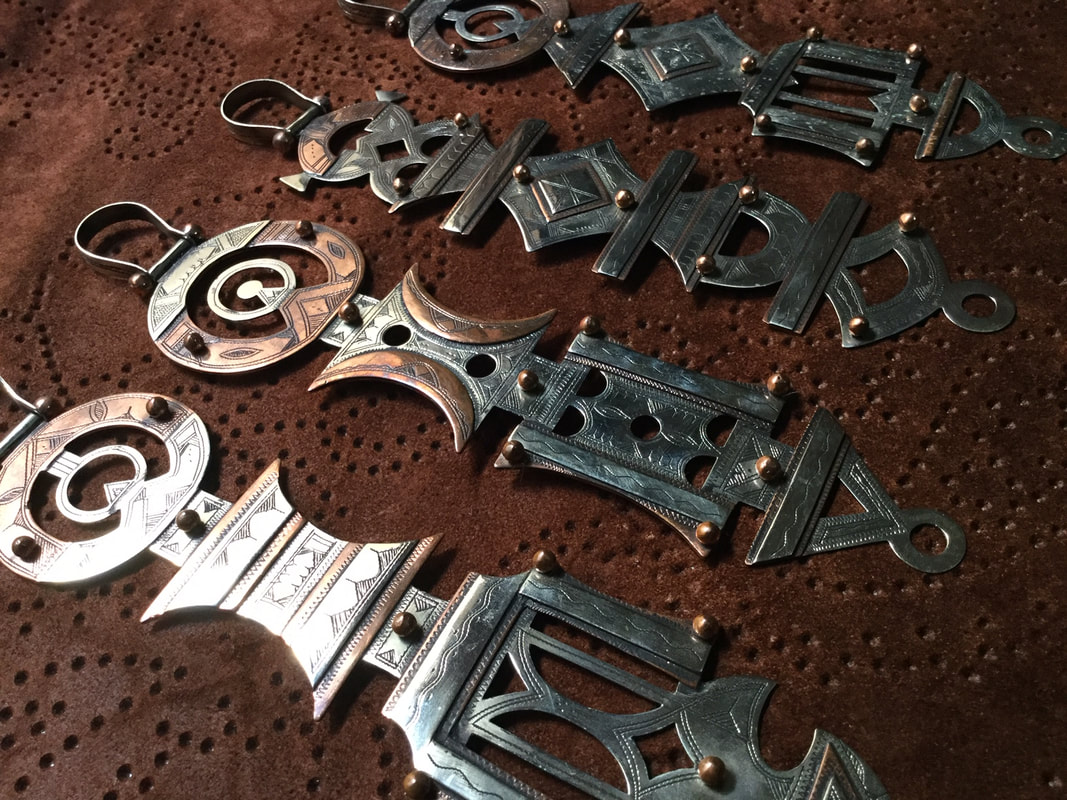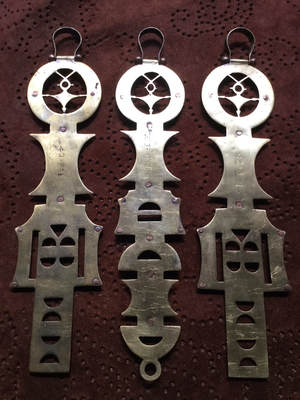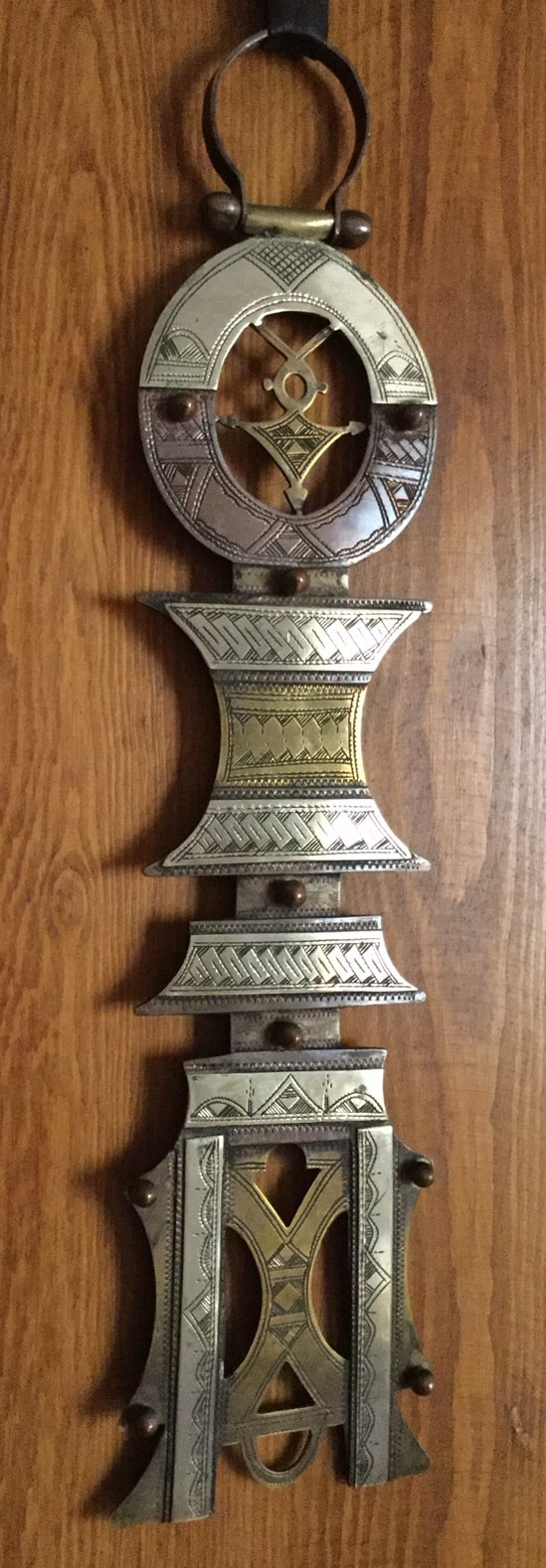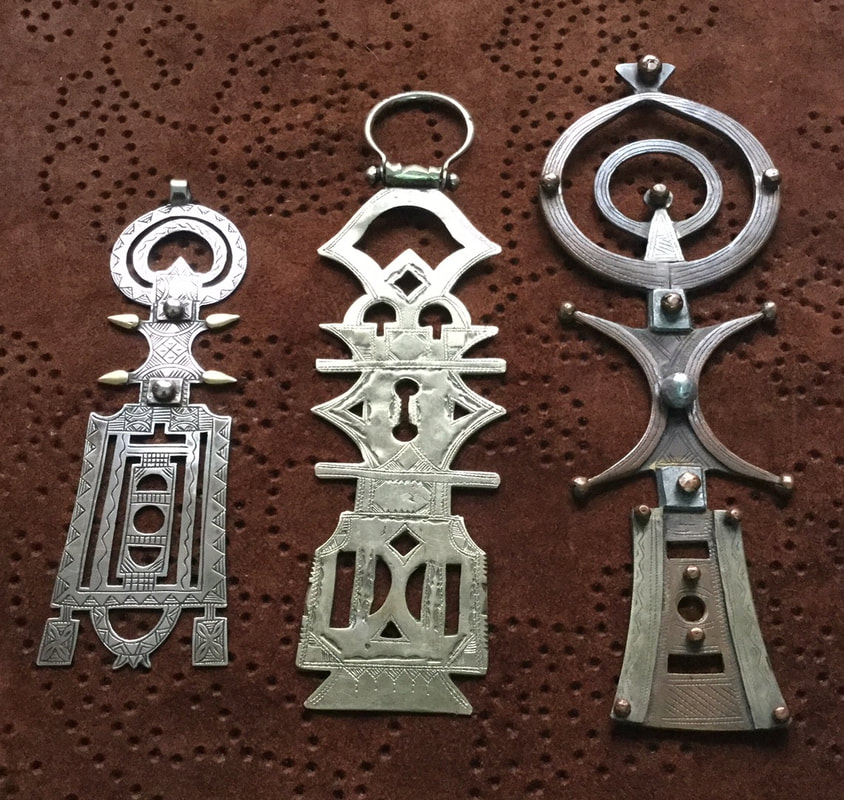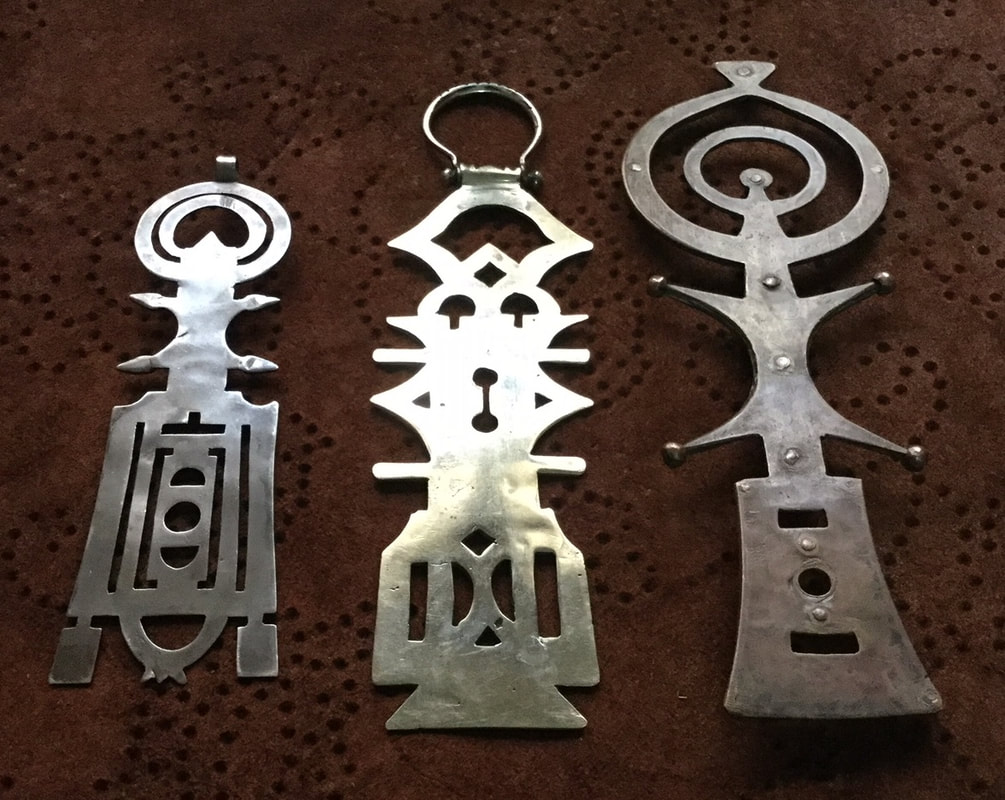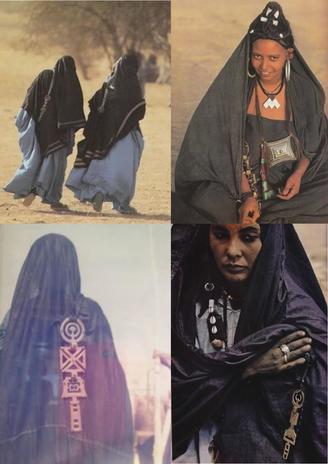T U A R E G V E I L W E I G H T S
Only occasionally do I come across Tuareg veil weights in the jewellery shops and souks here in Morocco.
Below are some specially sourced pieces from the Sahara regions of Mali, Mauritania and Niger -
entirely hand made using a combination of various metals:
brass, bronze, copper, steel and silver.
Their surfaces are covered with a language of etched Tuareg symbols.
They are talismanic amulets; intriguing and exceptional.
Below are some specially sourced pieces from the Sahara regions of Mali, Mauritania and Niger -
entirely hand made using a combination of various metals:
brass, bronze, copper, steel and silver.
Their surfaces are covered with a language of etched Tuareg symbols.
They are talismanic amulets; intriguing and exceptional.
Numbered, sized and priced below - in Australian dollars.
Contact me by email or simply send your enquiries through my Contact page.
Contact me by email or simply send your enquiries through my Contact page.
|
12. Engraved mixed metal with metal and ebony ball - 23cm - $340
|
13. Engraved mixed metal with metal and ebony ball - 23cm - $340
|
14. Engraved mixed metal with metal and ebony ball - 23cm - $340
|
15. Engraved mixed metal with metal and ebony ball - 23.5cm - $340
|
16. Engraved mixed metal with metal and ebony ball and leather loop - 23.5cm - $340
|
17. "Abalak" cross engraved mixed metal with leather loop -
23cm - $350 |
Keep scrolling for details of veil weights 1 to 11 ...
|
4 : This spectacular piece at left, is all brass with engraved copper and steel additions - 32 cm - $480
Probably too long to wear comfortably as a shawl weight but magnificent as a wall piece - SOLD
back views of 1, 2 and 3
|
|
Context of the Tuareg Veil Weights These hand wrought metal symbols of love and protection are worn by Tuareg women, who tie them to the end of their veils to act as a holding weight against the Saharan winds. Not face covering veils; Tuareg men cover their faces, but the women do not. Originally these weights were actual keys to women's jewellery chests and have evolved over time into separate, functional, personal adornment and symbols of wealth. Tuareg society is matrilineal and the women own the home and its contents and are free to divorce. The Tuareg are a large Amazigh (Berber) ethnic confederation of about three million people. They live in the Sahara of Libya, Algeria, Niger, Mali and Burkino Faso and are nomadic pastoralists. |


